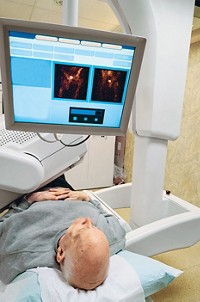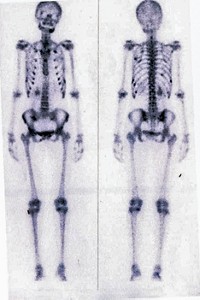Advertisement
Grab your lab coat. Let's get started
Welcome!
Welcome!
Create an account below to get 6 C&EN articles per month, receive newsletters and more - all free.
It seems this is your first time logging in online. Please enter the following information to continue.
As an ACS member you automatically get access to this site. All we need is few more details to create your reading experience.
Not you? Sign in with a different account.
Not you? Sign in with a different account.
ERROR 1
ERROR 1
ERROR 2
ERROR 2
ERROR 2
ERROR 2
ERROR 2
Password and Confirm password must match.
If you have an ACS member number, please enter it here so we can link this account to your membership. (optional)
ERROR 2
ACS values your privacy. By submitting your information, you are gaining access to C&EN and subscribing to our weekly newsletter. We use the information you provide to make your reading experience better, and we will never sell your data to third party members.
Environment
Isotope Shortage Returns
Shutdown of Canadian nuclear reactor threatens medical diagnostics
by Melody Voith
June 1, 2009
| A version of this story appeared in
Volume 87, Issue 22

The global supply of medical isotopes has been disrupted for the second time in less than a year—this time by the temporary shutdown of a nuclear reactor in Canada.
The reactor, in Chalk River, Ontario, will be out of service for more than three months while its operator, Atomic Energy of Canada, investigates a heavy-water leak. The facility is a major source of molybdenum-99, which is used to generate technetium-99m for diagnostic nuclear medical procedures such as cardiac blood-flow imaging, bone scanning for secondary tumors, and renal function monitoring.
The reactor produces 30 to 40% of the world's medical isotopes and approximately 50% of those used in North America, estimates MDS Nordion, a pharmaceutical isotope supplier.
The shutdown has left MDS and other providers of medical isotopes scrambling for additional sources. Molybdenum-99 cannot be stockpiled because of its 67-hour half-life, and it is produced by only five nuclear reactors from highly enriched uranium-235, also used to produce nuclear weapons. The other reactors are in Belgium, France, the Netherlands, and South Africa.
Shortages occur when the aging facilities shut down for repairs or periodic maintenance. A leak at the Dutch reactor caused last year's shortfall (C&EN, Sept. 15, 2008, page 7).
Bill Dawes, vice president of manufacturing and supply chain at Lantheus Medical Imaging, says the intermittent outages have caused his firm to diversify its supplier relationships. The company just announced an agreement with South African isotope supplier NTP Radioisotopes.
In the U.S., about 8 million procedures per year depend on the supply of isotopes from Canada, according to Robert Atcher, president of the Society of Nuclear Medicine. Longer term solutions to ensure a reliable supply of isotopes, such as using low-enriched uranium, he says, are still at the idea stage.
Atcher points out that there are substitutes for many of the procedures that require technetium-99m but that they may be more expensive, more invasive, less accurate, or emit a higher dose of radiation. "The shortage means that we cannot serve the patient population as well," he says.




Join the conversation
Contact the reporter
Submit a Letter to the Editor for publication
Engage with us on Twitter